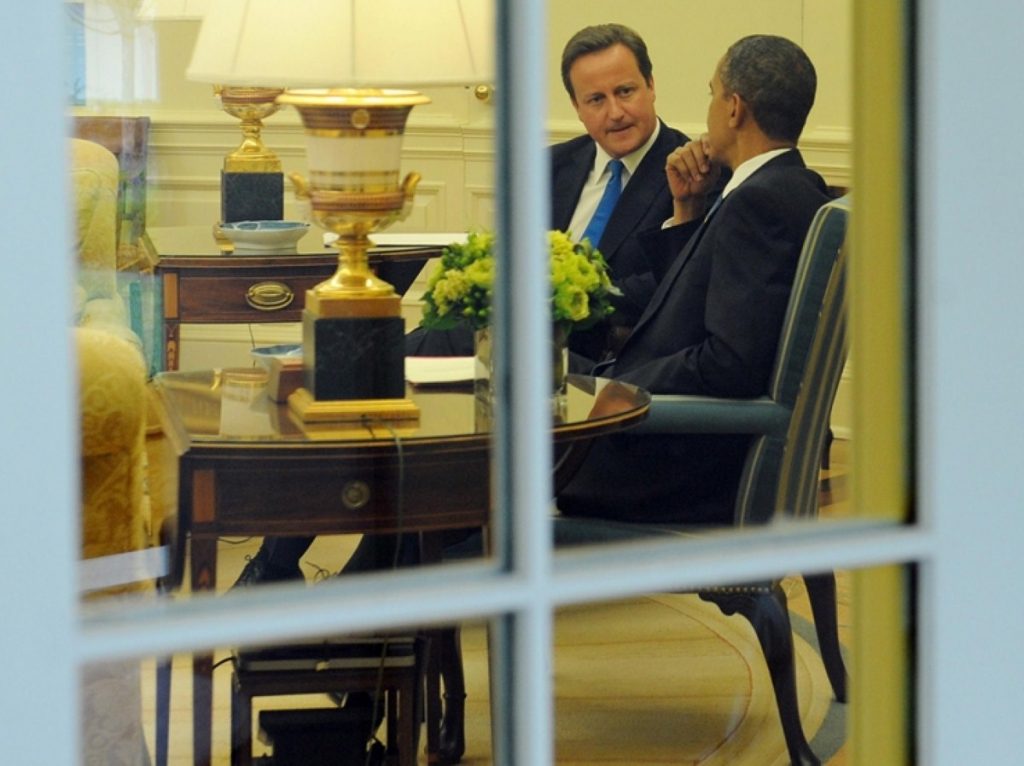Cameron and Obama reaffirm their faith in the ‘special relationship’
By Ian Dunt
David Cameron and Barack Obama started a new chapter in Anglo-US relations today, with both leaders reaffirming their faith in the special relationship during the prime minister’s first trip to Washington.
The two men put aside concerns about the release of Lockerbie bomber Abdelbaset al-Megrahi, the BP oil spill, president Obama’s supposed disinterest in Europe and British distrust in the ‘special relationship’ to praise their alliance.
The US’ relationship with Britain was “truly special”, Mr Obama said, and the world was “more secure and more prosperous” when the two countries worked together.


Mr Cameron said the relationship was “essential”.
Mr Cameron earlier signalled a new approach with a modest but firm article in the Wall Street Journal in which he admitted Britain was the junior partner in the relationship but insisted he would adopt a hard-headed approach to international negotiations.
Analysis: State of the ‘special relationship’
“I understand that we are the junior partner – just as we were in the 1940s and, indeed, in the 1980s,” he said.
“But we are a strong, self-confident country clear in our views and values, and we should behave that way.
“In a world of fast-growing, emerging economies, we have a responsibility to engage more widely and bring new countries to the top table of the international community.
“To do so is pro-American and pro-British, because it’s the only way we will maintain our influence in a changing world.”
The row over the release of Megrahi, triggered by continued anger over BP’s oil spill and a strong suspicion the company played a role in securing a prisoner transfer agreement with Libya, has dominated headlines during Mr Cameron’s visit.
Mr Cameron has agreed to meet four US senators to discuss the allegations, something he had previously ruled out due to a busy schedule.
“The prime minister recognises the strength of feeling and knows how important it is to reassure the families of the victims,” a Downing Street spokesman said.
“We are happy to see them face to face and find time in the diary.”
The prime minister has repeatedly reminded the public that he opposed the original decision to release Mr Megrahi, who was set free by Scottish justice minister Kenny MacAskill last August on the basis that he only had three months to live.
In his article in the Wall Street journal, Mr Cameron wrote: “On one issue in particular, Lockerbie, let me be absolutely clear there’s no daylight between [president Obama and I].
“I have the deepest sympathies for the families of those killed in the bombing. Abdelbaset al-Megrahi was found guilty of murdering 270 people. They weren’t allowed to go home and die in their own bed with their relatives around them.
“I never saw the case for releasing him, and I think it was a very bad decision.”
Mr MacAskill told the BBC: “I stand by the decision I made. I reflected and followed the rules and laws of Scotland. I upheld the values and the beliefs that we seek to live by as the people of Scotland.”
Following breakfast with vice-president Joe Biden, a Downing Street spokesman said the Mr Cameron and he “briefly discussed BP and the importance of the company meeting its commitments in respect of the oil spill” but did not mention the al-Megrahi issue.
Mr Cameron’s meeting with the American president is a testing time for the new prime minister.
Having stressed that he would adopt a more respectable and detached approach to the Anglo-US alliance as opposition leader, Mr Cameron was under pressure to show how he is different to his predecessors.

